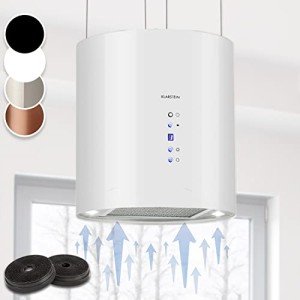It's The Ugly Facts About Island Hob
페이지 정보
본문
The Island Vent Hood: A Comprehensive Guide to Choosing and Installing the Perfect Kitchen Feature
In contemporary kitchen design, the island vent hood has become an important centerpiece, seamlessly combining functionality with visual appeal. With the increase of open-concept living areas, where kitchens are integrated with dining and living areas, the value of a properly designed ventilation system has become critical. This post explores what an island vent hood is, the numerous types readily available, key functions to consider, installation pointers, and FAQs surrounding this essential kitchen part.
What is an Island Vent Hood?
An island vent hood is a kitchen ventilation system created to be set up above an island cooktop or range. Unlike traditional wall-mounted hoods, island hoods are suspended from the ceiling, providing a clear view of the cooking area while efficiently getting rid of smoke, steam, and odors from the kitchen. This makes island hoods an attractive alternative for open designs while guaranteeing a clean and comfy cooking environment.
Types of Island Vent Hoods
When picking an island hob vent hood, it is vital to understand the various types readily available in the market. Here are the main classifications:
| Type | Description |
|---|---|
| Ducted | Ventilation is directed outside, supplying the very best air quality by expelling air and odors. |
| Ductless | Uses filters to clean the air and recirculate it back into the kitchen; easier to set up. |
| Convertible | Can operate in both ducted and ductless modes, providing flexibility in setup. |
| Under-Cabinet | Mounted under kitchen cabinetry; normally lower output, suitable for smaller sized kitchen layouts. |
Secret Features to Consider
Choosing the best cooker island hood vent hood involves numerous important factors. Here are the vital functions to think about:
- Size: The hood should be at least as broad as the cooktop. Ideally, it needs to extend 6 inches on either side for ideal performance.
- CFM Rating: The Cubic Feet per Minute (CFM) score shows the hood's ventilation power. Greater CFM is needed for heavy cooking, while lower CFM might be sufficient for lighter use.
- Sound Level: Measured in sones, a lower sone score indicates a quieter operation. A quiet fan is particularly important in open-concept spaces.
- Lighting: Many island hoods come equipped with built-in lighting. LED lights are popular for their energy effectiveness and longevity.
- Style: Island vent hoods can be found in different designs, consisting of modern, conventional, and industrial. Choose a hood that complements the general kitchen visual.
Installation Tips
Setting up an island cooking hood vent hood can be a complicated procedure. Here are some important ideas to help with the setup:
- Check regional codes and regulations to guarantee compliance with installation height and electrical requirements.
- Identify the hood's height: The top of the hood should be 30 to 36 inches above the cooking surface, depending on the manufacturer's recommendations.
- Secure the mounting bracket: Ensure that the mounting bracket is properly anchored to the ceiling to support the weight of the hood and motors.
- Ductwork factors to consider: If utilizing a ducted system, ensure appropriate duct size and layout for optimal airflow. Prevent sharp bends in ducting, which can restrain air movement.
- Electrical setup: Ensure that the electrical connections satisfy your hood's power requirements, and think about working with a certified electrician for complicated setups.
Cost Considerations
The cost of an island island cooker extractor hood vent hood can range significantly depending on features, materials, and brand name. Below is a breakdown of potential expenses associated with acquiring and setting up these hoods:
| Cost Element | Approximated Range |
|---|---|
| Fundamental Models | ₤ 300 - ₤ 600 |
| Mid-range Models | ₤ 600 - ₤ 1,200 |
| High-End Models | ₤ 1,200 - ₤ 3,000+ |
| Installation Costs | ₤ 200 - ₤ 500 |
Regularly Asked Questions
1. How often should I clean my island vent hood?Regular cleaning is encouraged, with deep cleansing at least as soon as a month, especially if you cook regularly. 2. Can I install an island vent

hood myself?While it is possible, professional
setup is advised for safety and ideal efficiency, particularly with ductwork and electrical connections. 3. Are ductless island hoods effective?Ductless hoods can effectively filter
smoke and smells, however they might not be as effective as ducted designs. They need regular filter replacements and upkeep. 4. What type of maintenance does an island vent hood require?Regular cleansing of filters, lights, and hoods, in addition to looking for any wear and tear on motors or ductwork is crucial for preserving performance
. 5. What type of filters must I use?Most island vent hoods use aluminum or charcoal filters. Aluminum filters are recyclable, while charcoal filters need to be changed
regularly. The Island cooker extractor hood vent hood is an important component of a modern kitchen, supplying exhaustion of unwanted odors and making a striking style declaration. Picking the ideal type, comprehending important
functions, and adhering to appropriate setup strategies will guarantee optimal performance and durability of this kitchen home appliance. Whether you are a seasoned chef or an occasional home cook, the right island vent hood can considerably enhance your cooking experience. By following the guidelines and factors to consider outlined in this post, property owners can make informed decisions and take pleasure in a cleaner and more satisfying cooking environment.